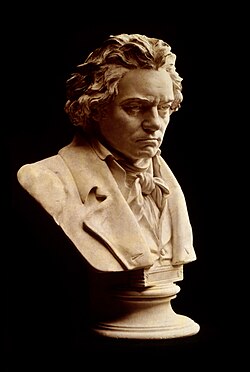Portal:European Union
Introduction
The European Union (EU) is a supranational political and economic union of 27 member states that are located primarily in Europe. The Union has a total area of 4,233,255 km2 (1,634,469 sq mi) and an estimated total population of over 449 million. The EU has often been described as a sui generis political entity combining the characteristics of both a federation and a confederation. Containing 5.8% of the world population in 2020, EU member states generated a nominal gross domestic product (GDP) of around US$16.6 trillion in 2022, constituting approximately one sixth of global nominal GDP. Additionally, all EU states except Bulgaria have a very high Human Development Index according to the United Nations Development Programme. Its cornerstone, the Customs Union, paved the way to establishing an internal single market based on standardised legal framework and legislation that applies in all member states in those matters, and only those matters, where the states have agreed to act as one. EU policies aim to ensure the free movement of people, goods, services and capital within the internal market; enact legislation in justice and home affairs; and maintain common policies on trade, agriculture, fisheries and regional development. Passport controls have been abolished for travel within the Schengen Area. The eurozone is a group composed of the 20 EU member states that have fully implemented the economic and monetary union and use the euro currency. Through the Common Foreign and Security Policy, the union has developed a role in external relations and defence. It maintains permanent diplomatic missions throughout the world and represents itself at the United Nations, the World Trade Organization, the G7 and the G20. Due to its global influence, the European Union has been described by some scholars as an emerging superpower. In 2012, the EU was awarded the Nobel Peace Prize. The United Kingdom became the only member state to leave the EU, in 2020; ten countries are aspiring or negotiating to join it. (Full article...) Selected article The history of Lithuania between 1219 and 1295 deals with the establishment and early history of the first Lithuanian state, the Grand Duchy of Lithuania. The beginning of the 13th century marks the end of the prehistory of Lithuania. From this point on the history of Lithuania is recorded in chronicles, treaties, and other written documents. In 1219, twenty-one Lithuanian dukes signed a peace treaty with Halych-Volhynia. This event is widely accepted as the first proof that the Baltic tribes were uniting and consolidating. Despite continuous warfare with two Christian orders, the Livonian Order and the Teutonic Knights, the Grand Duchy of Lithuania was established and gained some control over the lands of Black Ruthenia, Polatsk, Minsk, and other territories east of modern-day Lithuania that had become weak and vulnerable after the collapse of Kievan Rus'. The first ruler to hold the title of Grand Duke was Mindaugas. Traditionally he is considered the founder of the state, the one who united the Baltic tribes and established the Duchy. Some scholars, however, challenge this perception, arguing that an organized state existed before Mindaugas, possibly as early as 1183. After quelling an internal war with his nephews, Mindaugas was baptized in 1251, and was crowned as King of Lithuania in 1253. Selected picturePhoto: W. J. Mayer; Restoration: Lise Broer A bust of the German composer and pianist Ludwig van Beethoven (1770–1827), made from his death mask. He was a crucial figure in the transitional period between the Classical and Romantic eras in Western classical music, and remains one of the most acclaimed and influential composers of all time. Born in Bonn, of the Electorate of Cologne and a part of the Holy Roman Empire of the German Nation in present-day Germany, he moved to Vienna in his early twenties and settled there, studying with Joseph Haydn and quickly gaining a reputation as a virtuoso pianist. His hearing began to deteriorate in the late 1790s, yet he continued to compose, conduct, and perform, even after becoming completely deaf.
Did you know?... that the presidency of the EU Council rotates every half year? ... that the EU parliamentary election is the world's biggest transnational election? ... that the European Union was awarded the Nobel Peace Prize in 2012? Selected cityBucharest is the capital city and industrial and commercial centre of Romania. It is located in the southeast of the country, and lies on the banks of the Dâmboviţa River. By European standards Bucharest is not an old city, its existence first being referred to by scholars as late as 1459. Since then it has gone through a variety of changes, becoming the state capital of Romania in 1862 and steadily consolidating its position as the centre of the Romanian mass media, culture and arts. Its eclectic architecture is a mix of historical, interbellum, Communist-era, and modern. In the period between the two World Wars, the city's elegant architecture and the sophistication of its elite earned Bucharest the nickname of the "Paris of the East" or "Little Paris". According to the 2011 census, Bucharest proper has a population of 1,883,425. There are approximately 2.3 million inhabitants in the greater metropolitan area. Economically, the city is by far the most prosperous in Romania and is one of the main industrial centres and transportation hubs of Eastern Europe. As the most important city in Romania, Bucharest also has a broad range of educational facilities. General imagesThe following are images from various European Union-related articles on Wikipedia.
TopicsFeatured contentFeatured articles
Featured lists
Featured contentGood articles
CategoriesRelated portalsAssociated WikimediaThe following Wikimedia Foundation sister projects provide more on this subject:
Discover Wikipedia using portals |
































































